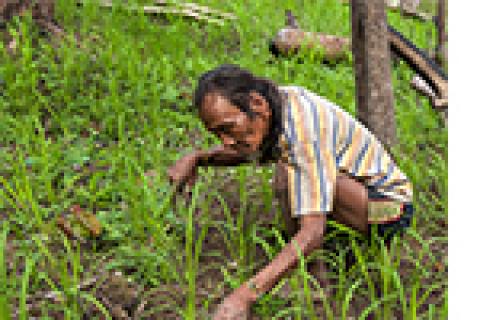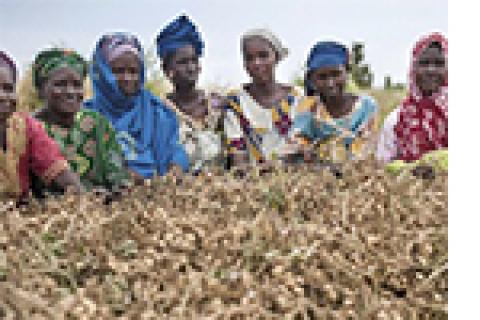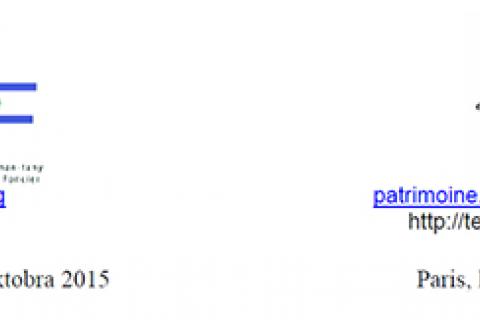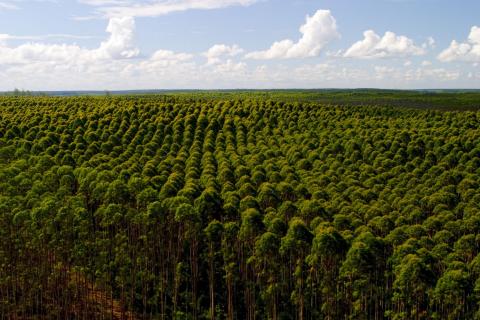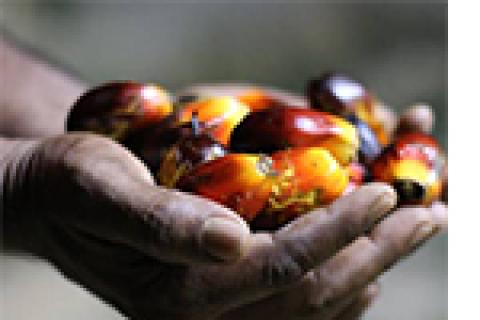A new video by La Vía Campesina and GRAIN is part of a campaign to highlight the key role of the industrialized food system to the climate crisis. The video provides accessible information to understand the six main impacts of the agroindustrial food system that contribute to global warming: deforestation, industrial farming, transport, processing, refrigeration and food waste.
Other information
An international statement signed by over 250 organizations and movements from around the world expresses deep concerns about the growing influence and agenda of so-called “Climate-Smart Agriculture” (CSA) and the Global Alliance for Climate-Smart Agriculture (GACSA).
Climate disruptions cause widespread hunger, migration and the worsening of living conditions for millions of rural families, especially women and youth. The global food system imposed on people by Transnational Corporations (TNCs) is both a total failure and one of the main causes of the human-induced climate crisis – dependent on fossil fuels to produce, process and transport. Peasant agriculture and local food systems, by contrast, have proven themselves capable of sustainably feeding people for centuries.
Traditional upland farming implemented through swidden (‘slash-and-burn’) technology (kaingin) in The Philippines is demonized and antagonized through restrictive legislation. In Palawan forests are being destroyed by agribusiness (mainly oil palm and rubber), mining enterprises and various forms of land grabbing. Yet, state agencies as well as some Palawan NGOs still view indigenous kaingin as ‘illegitimate agriculture’ and as the primary cause of deforestation.
Peasant seeds – the pillar of food production – are under attack everywhere. Under corporate pressure, laws in many countries increasingly limit what farmers can do with their seeds. Seed saving, which has been the basis of farming for thousands of years, is quickly being criminalised.
In the middle of the biggest continuous area of Brazil’s Atlantic Forest, southwest of Sao Paulo, researchers of the University of Sao Paulo and the State University of Campinas accompany the changes in the region’s quilombola communities since 2003.
The publication recently launched by the Mexican organization Otros Mundos Chiapas is an effort to share many elements and experiences of community forest management. Facing a vast quantity of information disseminated by governmental and non-governmental organizations that side with the mercantilization of nature policies, many forest communities and peoples must confront new processes to defend their land and territory.
The platform SIF and Collective TANY call on the Malagasy public opinion and all citizens worldwide to sign a petition to urge the Malagasy authorities to adopt laws which secure the farmers and local communities rights on their lands.
On September 21, about 300 indigenous peoples occupied the Nedila property in the municipality of Prado Bahia, Brazil, where the Suzano Company has a eucalyptus monoculture plantation. The main demand of the indigenous peoples is the immediate closure of the plantation, which is already causing great environmental destruction. The plantation is still not fully developed, but it is already showing its harmful effects on humans as well as on fauna and flora.
Malaysian palm oil industry, which produces 40 per cent of the world’s palm oil supply, is growing but, according to labourers and activists interviewed by a Wall Street Journal report, also surrounded with abuses. Migrant workers, especially from Bangladesh and Myanmar, are being brought in terrible conditions by human traffickers as labourers in certain palm oil plantations in Malaysia.
An article from the recently launched book “Gender and Land Tenure in the context of Disaster in Asia”, examines the impact of changing land use and land tenure systems in Sarawak on human rights, livelihoods, and local gender practices. The article studies the Iban community of Kampong Lebor whose customary lands were cleared by companies to establish oil palm plantations.
In 2013, the Rapporteur on human rights to the environment (RDHMA, for its Portuguese acronym), from the DhESCA Platform, conducted a Research and Advocacy Mission in the state of Acre on the green economy problematic and its political and territorial effects. Different state governments, especially in the Amazon, have already established or are in the process of defining state policies contemplating proposals for payments for environmental services and REDD+. Acre is one of the pioneers.



